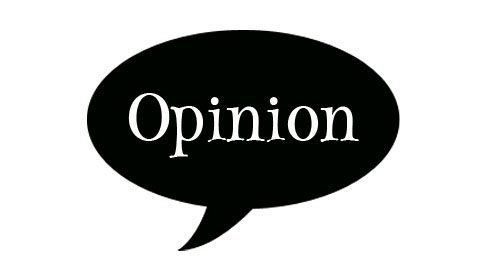
WHY IS it the case that battle lines are drawn and battle-axes emerge whenever there are fresh developments in the circumstances surrounding Julian Assange? Well, it’s kind of complicated.
On the one hand, there are charges of a personal nature: a Swedish arrest warrant ostensibly based on accusations of rape and sexual assault, which led to an Interpol red notice, usually reserved for particularly egregious offenders, and extradition proceedings in Britain. On the other, there is the fact that Assange is at the helm of WikiLeaks, which has been responsible for a series of revelations that have profoundly embarrassed the United States of America.
Is there a connection between the two? In other words, has Sweden’s vigorous pursuit of Assange been politically motivated? And is Britain complicit in this charade? Or is the WikiLeaks founder trying to use his status as a defender of free speech and patron of whistleblowers to evade prosecution for criminal offences?
Earlier this month he was granted political asylum by Ecuador after having sought refuge at the tiny South American nation’s embassy in London once his legal options against extradition to Sweden ran out. This has led to further fulminations as well as a diplomatic standoff.Britain initially suggested that it would be well within its rights to transgress diplomatic immunity by forcibly entering the embassy to arrest Assange. This predictably touched off a minor storm, with virtually all of Latin America — including conservative-led Colombia and Chile — lining up behind Ecuador.
Last weekend Britain formally withdrew its threat, but the development coincided with the apparently inadvertent revelation that police outside the embassy in Knightsbridge were under orders to take Assange into custody even if he emerged from the premises in a diplomatic bag.Considerable effort, meanwhile, has gone into portraying Ecuador’s president Rafael Correa as a left-wing dictator — never mind that he has won two fair and free elections — who muzzles the media at home while posing internationally as a champion of free speech. It has also been claimed that Quito’s embroilment in a foreign affair offers a distraction from domestic affairs that may be intended to facilitate Correa’s re-election next February.
This line of attack may be intended in part to deflect attention from the fact that Correa’s asylum decision has proved reasonably popular domestically. And the Ecuadorian leader has been at pains to point out that his government’s actions against certain privately-owned media outlets are not exactly aimed at silencing the opposition but a reaction to ethical and legal violations.
There is a natural inclination to take such assertions with a pinch of salt, not least in the wake of similar steps in Venezuela — which, under Hugo Chavez, effectively led Latin America’s drift towards social democracy. This is at least partly because most Western observers have at best a second-hand knowledge of the extent to which the pro-neoliberal media is willing to go in such countries in its efforts to destabilise governments that are even moderately inclined towards social justice and a redistribution of wealth.
At any rate, the Ecuadorian authorities did not react to Assange’s asylum request with knee-jerk acceptance. It weighed its options, and after granting the request Correa has consistently claimed that his government would welcome circumstances whereby its Australian guest could answer Swedish investigators’ questions without facing the threat of extradition to the US.
Neither the British nor the Swedish authorities have been willing to offer any guarantees on this score, and the latter have declined invitations to interview him in London. Their claim that they cannot do so, given that there apparently is no American extradition request at the moment, and were one to arise it would have to be dealt with by the courts, seems reasonable on the face of it — provided one ignores the fact that such decisions are invariably political. The argument that neither European country would be inclined to deport an accused person to a country where they might face torture or execution does not really stand up in the face of evidence that both Britain and Sweden have in the past “renditioned” terrorist suspects to countries such as Egypt and Libya.
And in the wake of WikiLeaks revelations, particularly in the context of its dirty wars in Iraq and Afghanistan, the US made it reasonably clear that it views Assange as a “high-tech terrorist”, amid unofficial suggestions that he should be a target for assassination. A grand jury in Virginia, it has frequently been reported, has secretly been investigating WikiLeaks for more than a year, and has issued a sealed indictment. While some US representatives have challenged suggestions that he is a wanted man, there has been no unequivocal official denial of these reports.
As for the Swedish case against him, many of those who otherwise support Assange have pointed out that the accusations of rape and sexual assault deserve to be taken seriously. Others have suggested that the allegations are facetious, thereby incurring the charge that they are misogynistic-ally dismissive of crimes against women. On the other hand, even some Swedish legal experts have expressed the opinion that the available evidence would not stand up in court. And, as an Australian Broadcasting Corporation investigation depicted last month, there are indeed loopholes in the story that hint at the possibility that the two women behind the allegations were railroaded by the authorities into going further than they intended.
By no means does it follow, however, that Assange is necessarily innocent. He should certainly be answerable. He deserves at the same time to be free of the risk of deportation to the US. He and his supporters have been accused of conflating two very different matters. But it is not they alone who are culpable in this context. It shouldn’t be impossible for Britain and Sweden to disentangle the issues.Ecuador has said Assange can remain in its embassy for two centuries, if necessary. That’s unlikely to be a fate he would choose even if he were to deem himself immortal. There are bound to be further twists in the saga sooner or later, but the prospects of absolute transparency remain ironically dim. – Khaleejnews












